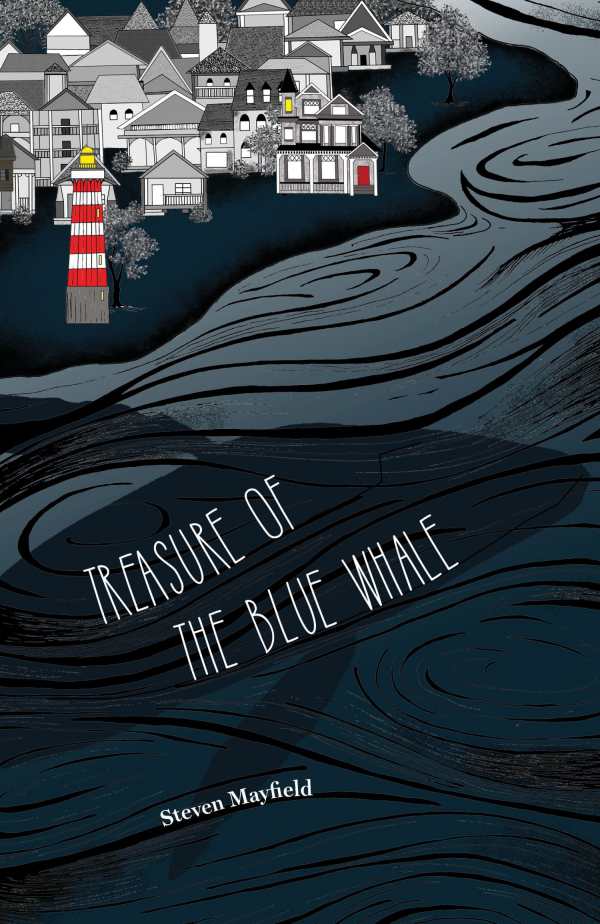Treasure of the Blue Whale
- 2020 INDIES Winner
- Honorable Mention, General (Adult Fiction)
In the masterful novel Treasure of the Blue Whale, snowballing secrecy and lies are counterbalanced by genuine community warmth.
In Steven Mayfield’s bracing literary caper, Treasure of the Blue Whale, a coastal town experiences a change of fortune.
In the summer of 1934, a foul mass of ambergris, expunged from a whale’s belly, washed ashore in Tesoro. Connor, who was then ten and who recounts the tale as a ninety-one-year-old, found it. Through a nostalgic blend of exaggeration and semi-truthful reminiscing, Connor relates how the villagers planned to sell the ambergris to perfumers, believing it to be worth millions. This inspired the town’s richest man, Dinkle, to offer lines of credit in exchange for everyone’s ambergris shares.
The neighbors’ subsequent purchases, from a Capuchin monkey to a Chinese bride, whale-shaped door stoppers, and a jeweled commode, are witnessed by Connor, who responds to the adults’ behavior with bemusement. There’s little moralizing about greed, and the Depression-era poverty that fuels excess is maintained at a Chaplinesque level, tying the neighbor’s escapades together to form an entertaining portrait of irrational wants and quirky individuals.
Connor’s hindsight results in wisdom and encompasses details about others, including Dinkle’s Russian driver, Yurievsky, that he learned about much later. This clever storytelling tactic enriches the book, casting just enough doubt on Connor’s version of events to make him an appealing, impish narrator. His younger brother, Alex, complements him as a serious, clear-eyed counterpoint.
The irrational buying spree slows when the handful of skeptical folks who didn’t fall for Dinkle’s hoodwinking loan terms discover that the ambergris was never worth much. These “Ambergrisians” plan to save their neighbors from being indebted to Dinkle with an elaborate setup designed to make Dinkle think he’s getting the better end of a deal.
The fallout from Connor’s ambergris discovery, which includes a temporary influx of treasure hunters, and people’s tetchy behavior as some realize that they were better off before they had credit, is realistic. Dinkle is a cartoonish adversary, though, and the villagers’ plans to con him sometimes take a back seat to drawn-out gags involving the monkey and the jeweled commode. When the plan does unfold, it prompts Connor to act like a spy, resulting in a classic sequence full of imagined peril.
Surprising twists in which Yurievsky leverages knowledge about his boss’s underhanded dealings to get the Ambergrisians out of trouble for hiding the ambergris’s true worth infuse the tale with melodrama, all in keeping with the book’s tongue-in-cheek humor. The real treasure turns out to be a strong community, and this revelation is charming. Colorful shenanigans and period characters—who, for all their shortsighted squabbling, come across as a tightly bound extended family—make the novel delightful.
In the masterful novel Treasure of the Blue Whale, snowballing secrecy and lies are counterbalanced by genuine community warmth.
Reviewed by
Karen Rigby
Disclosure: This article is not an endorsement, but a review. The publisher of this book provided free copies of the book and paid a small fee to have their book reviewed by a professional reviewer. Foreword Reviews and Clarion Reviews make no guarantee that the publisher will receive a positive review. Foreword Magazine, Inc. is disclosing this in accordance with the Federal Trade Commission’s 16 CFR, Part 255.

